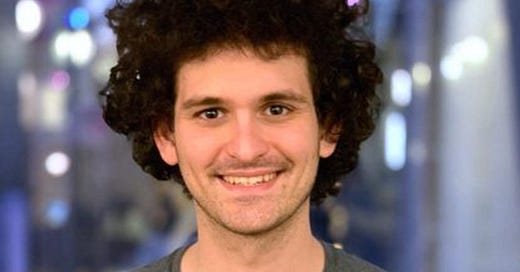Bootlegger stories abound with the figure of the Bible-thumping Baptist (or other denomination) minister who quietly distilled corn whiskey on the side to enhance his income. In fact, Dan Call, the man a young Jack Daniel worked for alongside his Tennessee whiskey-making mentor Nathan Green, was a Lutheran pastor. I even recall my Reverend sipping from a handy flask at church cookouts! (But then, I did grow up Episcopalian.)
But are there figurative bootleggers who function as Baptists in the realm of regulatory politics today?
Back in March, I ended my previous essay with an unresolved question: can a bootlegger also be a Baptist? That is to say, in courting public favor, can “bootlegger” interest groups assemble the necessary moral cover to become effective “Baptists” themselves in their crusade for government favors? This is a question the original theory leaves open, and was studied more carefully in the 2014 book I co-authored with my grandfather, Bruce Yandle, Bootleggers and Baptists: How Economic Forces and Moral Persuasion Interact to Shape Regulatory Politics. He is, of course, the originator of the B&B theory of regulation.
The role of the “Baptists” in the B&B model gets short shrift in the econ world, as it is difficult to model the complexities involved in gaining moral favor. “Bootleggers,” who pursue self-interested goals, are easier to model using traditional economics and so tend to be emphasized more.1 (Of course, the original Adam Smith had no trouble writing within the context of both market forces and moral sympathies, a topic I will return to in my next essay.)
The discussion matters beyond academic noodling, because if bootleggers can provide their own moral cover, then the role of Baptists becomes tenuous, and perhaps even unnecessary to explain political outcomes. Many a public choice economist would breathe a sigh of relief if it were so.
Here I will use the recent example of Sam Bankman-Fried (SBF) and the explosive bankruptcy of his international crypto exchange company, Futures Exchange (FTX), to further resolve this question.2 It may seem like cherry-picking to use a single event to expand upon a theory. But then again, some have claimed even the original theory is nothing more than good storytelling, and the story of SBF is epic stuff indeed!
Keep reading with a 7-day free trial
Subscribe to Baptists, Bootleggers, and Everything in Between to keep reading this post and get 7 days of free access to the full post archives.



